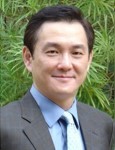Dr. Nicky Lu (盧超群)
Chairman, CEO & Founder, Etron Technology, Inc.
Managing Board Director, Taiwan Semiconductor Industry Association (TSIA)
As a researcher, design architect, entrepreneur and chief executive, Dr. Lu has dedicated his career to the worldwide IC design and semiconductor industry. He also co-founded several other high-tech companies including Ardentec, Global Unichip and GTBF Corporations.
Dr. Lu worked for the IBM Research Division and then the Headquarters from 1982 to 1990 and won numerous IBM recognition awards, including an IBM Corporate Award. He co-invented and pioneered a 3D-DRAM technology, known as the Substrate-Plate Trench-Capacitor (SPT) cell, along with its associated array architecture, which has been widely used by IBM and its licensees from 4Mb to 1Gb DRAMs and embedded DRAMs over hundreds of billions dollars. Dr. Lu designed several High-Speed CMOS DRAM (HSDRAM) chips, with all top worlds’ records of performance. He was a co-architect leading the 8-inch wafer and DRAM/SRAM/LOGIC technology developments for Taiwan semiconductor industry in early 1990s, also created many Taiwan companies as prominent silicon-chip suppliers. Since 1999 he has pioneered Known-Good-Die Memory Products enabling 3D stacked-dices system chips; this work summoned the new rise of an IC Heterogeneous Integration Era as described in his ISSCC-2004 plenary talk, demonstrating a new 3D-IC trend. He was a keynote speaker at the 2016 A-SSCC disclosing Silicon-Age-4.0 Era with a new Virtual Moore's Law as a indicator of continual economic growth.
Dr. Lu received his B.S. in Electrical Engineering from National Taiwan University and M.S. and Ph.D. in EE from Stanford University. He holds over 30 U.S. patents and has published more than 60 technical papers. He serves as Managing Board Director and was Chairman of TSIA, as Board Member of Global Semiconductor Alliance (GSA) and GSA’s General Chair (2009 to 2011), and Chairman of WSC (World Semiconductor Council) from 2014 to 2015.
He received the Scientific Management Award (2012) from Chinese Society for Management of Technology and Taiwan’s Golden Merchant Award (2007) from General Chamber of Commerce. He is an Outstanding Alumnus of National Taiwan University, a Chair Professor and an Outstanding Alumnus of National Chiao Tung University, an IEEE Fellow, the recipient of the IEEE 1998 Solid-States Circuits Award, a member of NAE (National Academy of Engineering of USA), and received of a SEMI Industry Contribution Award in 2017.
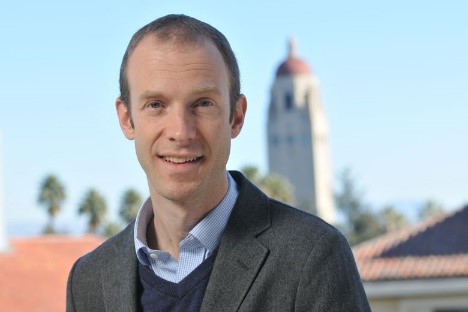
Chuck Eesley
Associate Professor and W.M. Keck Foundation Faculty Scholar
Department of Management Science and Engineering at Stanford University
Chuck Eesley is an Associate Professor and W.M. Keck Foundation Faculty Scholar in the Department of Management Science and Engineering at Stanford University. As part of the Stanford Technology Ventures Program, his research focuses on the role of the institutional and university environment in high-growth, technology entrepreneurship. Prof. Eesley was selected in 2015 as an Inaugural Schulze Distinguished Professor. His National Science Foundation of China and Kauffman award supported research focuses on rethinking how the educational and policy environment shapes the economic and entrepreneurial impact of university alumni. Over the past three years, Prof. Eesley has been playing a growing role in national and international meetings on fostering high-tech entrepreneurship, including advising the U.S. State Department in the Global Innovation through Science and Technology (GIST) program, Chile (CORFO), Taiwan (ITRI), and the Korean Ministry of Science and Technology. He is a member of the Editorial Board for the Strategic Management Journal. Before coming to Stanford, Prof. Eesley completed his Ph.D. at the M.I.T. Sloan School of Management in 2009 where he won BPS Division and Kauffman Dissertation Awards for his work on high-tech entrepreneurship in China.
He started his first company while earning a Bachelor's degree from Duke University in 2002 (Biological Basis of Behavior). Prof. Eesley spent 2002-2005 doing research at the Duke University Medical Center (schizophrenia) and Duke’s Center for Health Policy (vaccine innovation). His work has been published among other places in Organization Science, Strategic Management Journal, Research Policy, and Biological Psychiatry. Prof. Eesley previously was an entrepreneur (Lobby 10, Sun Dance Genetics, Learning Friends), early employee (NovoEd.com), board member/advisor (Blackbird - acquired by Etsy, LessonFace.com), and investor (Flagship Ventures, Lux Capital). NovoEd.com launched around his online course, which was the first entrepreneurship MOOC and has taught over 200,000 students in over 100 countries. He currently serves as an independent board director on public as well as private companies in online education and AI/Deep Learning. He has given invited talks in forums with the Prime Minister of Slovenia and keynote addresses in Taiwan, China, and Brazil. His research findings have been featured in outlets such as Forbes (2011, 2012, 2013, 2015), Bloomberg, Smart Money, Stanford News, 2012, 2016, Wall Street Journal, SFGate, The Independent, Boston.com (Bill Gates), Inc. magazine, and the Chronicle of Higher Education.

Matthew Reagor
Practical Experimental Physicist
Rigetti Computing
Matt Reagor is an experimental physicist at Rigetti Quantum Computing. He leads an experimental design and execution cycle in a rapid startup environment. His team is developing next-generation superconducting processors for cloud-programmable quantum computers. Prior to Rigetti, Matt earned a PhD in the Schoelkopf Lab at Yale on the first millisecond quantum memory for superconducting qubits.
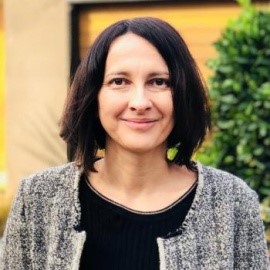
Jelena Vuckovic
Professor
Electrical Engineering and by courtesy of Applied Physics at Stanford
Jelena Vuckovic is a Professor of Electrical Engineering and by courtesy of Applied Physics at Stanford, where she leads the Nanoscale and Quantum Photonics Lab. She is also a faculty member of the Ginzton Lab, PULSE Institute, SIMES Institute, and Bio-X at Stanford. Upon receiving her PhD degree in Electrical Engineering from the California Institute of Technology (Caltech) in 2002, she worked as a postdoctoral scholar at Stanford. In 2003, she joined the Stanford Electrical Engineering Faculty, first as an assistant professor (until 2008), then an associate professor with tenure (2008-2013), and finally as a professor of electrical engineering (since 2013). As a Humboldt Prize recipient, she has also held a visiting position at the Institute for Physics of the Humboldt University in Berlin, Germany (since 2011). In 2013, she was appointed as a Hans Fischer Senior Fellow at the Institute for Advanced Studies of the Technical University in Munich, Germany.
In addition to the Humboldt Prize (2010) and the Hans Fischer Senior Fellowship (2013), Vuckovic has received many awards including the Marko V. Jaric award for outstanding achievements in physics (2012), the DARPA Young Faculty Award (2008), the Chambers Faculty Scholarship at Stanford (2008), the Presidential Early Career Award for Scientists and Engineers (PECASE in 2007), the Office of Naval Research Young Investigator Award (2006), the Okawa Foundation Research Grant (2006), and the Frederic E. Terman Fellowship at Stanford (2003). She is a Fellow of the American Physical Society (APS) and of the Optical Society of America (OSA).
Vuckovic is a member of the scientific advisory board of the Max Planck Institute for Quantum Optics - MPQ (in Munich, Germany) and of the scientific advisory board of the Ferdinand Braun Institute (in Berlin, Germany). She is also an Associate Editor of ACS Photonics, a member of the editorial advisory board of Nature Quantum Information,, and was on the editorial board of the New Journal of Physics.
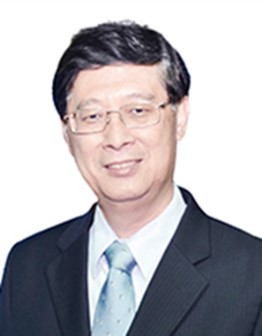
Yau-Hwang Kuo
Distinguished Professor
Department of Computer Science and Information Engineering
Director
Center for Research of E-life Digital Technology
National Cheng Kung University, Taiwan
Yau-Hwang Kuo is a Distinguished Professor in the Department of Computer Science and Information Engineering and Director of Center for Research of E-life Digital Technology at National Cheng Kung University, Taiwan. Currently, he is also in charge of the Promotion Center of University Social Responsibility Program launched by the Ministry of Education, Taiwan, in 2017. In his career, he is persistently devoted to the academia, education, and government policy planning of digital innovation and digital equality. He was the Executive Secretary of Board of Science and Technology, Executive Yuan (2016~2017), the Board Chairman of Institute for Information Industry (2016~2017), the Dean of College of Science at National Chengchi University (2012~2015), the Director of Engineering & Technology Promotion Center, National Science Council (2010), the Deputy Executive Secretary of Science and Technology Advisory Group, Executive Yuan (2006~2008), the Director of Computer Center, Ministry of Education (2004~2006), the Director of Computer Science and Information Engineering Program, National Science Council (2003~2005), and the President of Taiwanese Artificial Intelligence Association (1999~2001), Taiwan. His research focuses on AIoT, context-aware computing, and cloud computing.
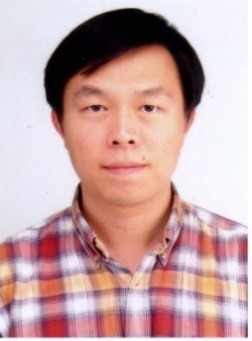
Chien-Chung Lin (林建忠)
Director, Electronic and Optoelectronic System Research Laboratories (EOSL) in Industrial Technology Research Institute (ITRI)
Professor, College of Photonics in National Chiao Tung University (NCTU)
Chien-Chung Lin was born in Taipei, Taiwan, in 1970. He received the B.S. degree in electrical engineering from the National Taiwan University, Taipei, in 1993, and the M.S. and Ph.D. degrees in electrical engineering from Stanford University, Stanford, CA, USA, in 1997 and 2002, respectively. His thesis work focused on design, modeling, and fabrication of micromachined-tunable optoelectronic devices. Since 2009, he has been with National Chiao Tung University (NCTU), Tainan, Taiwan, where he holds a position as a Professor. The major research efforts in his group are in design and fabrication of novel semiconductor optoelectronic devices, including LEDs, solar cells, and lasers. Since 2016, he is also jointly appointed by the Industrial Technology Research Institute (ITRI), where he participates and leads several key projects in the micro LEDs, 3DIC, and silicon photonics. Before joining NCTU, he worked for different start-ups in the United States. After graduating from Stanford in 2002, he joined E2O Communications Inc., Calabasas, CA, USA, as a Senior Optoelectronic Engineer. His main research interests then were in optically and electrically pumped long-wavelength vertical cavity surface emitting lasers. In 2004, he joined Santur Corporation, Fremont, CA, where he initially worked as a member of technical staff then became Manager of Laser Chip Engineering later. He had worked on various projects such as monolithic multiwavelength DFB Laser arrays for data and telecommunications applications, yield and reliability analysis of DFB Laser arrays, etc. He has more than 90 journal papers and 100 conference publications and is a senior member of both the IEEE Photonic Society and the Optical Society (formerly the Optical Society of America).
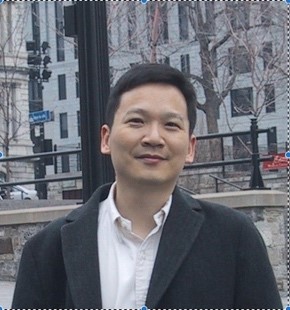
Chung-Yu Mou (牟中瑜)
Professor and director for Center for Quantum Tecnology
Department of Physics at National Tsing Hua University, Taiwan
EDUCATION
- Ph. D., Physics, California Institute of Technology, USA June 1993
- B.S., Physics, National Taiwan University, Taiwan June 1986
FIELDS OF SPECIALTY
Condensed Matter Physics (superconductivity, strongly correlated electronic Systems, topological quantum computation)
PROFESSIONAL EXPERIENCE
- Associate Professor, Physics department, National Tsing Hua University, 8/1996-7/2002
- Associate Professor, Physics department, National Chung-Cheng University, 8/1995-7/1996
- Postdoc research associate, Physics department, University of Virginia, USA, 8/1993-7/1995
- Chairman, Physics department, National Tsing Hua University, 8/2013-7/2017
- General Council Members of APCTP, 2008-2010
- Director of Physics Promotion Center, Taiwan, 2006-2007, 2010 – 2013
- Division Head, Physics division, National Center for Theoretical Sciences, Taiwan, 2007/8 -2009/12
- Associate Editor of Modern Physics Letters B , International Journal of Modern Physics B
- Referee for Physical Review Letter, Physics Review B, Applied Physics Letters, New Journal of Physics, Europhysics Letter, and Journal of Physics: Condensed Matter
AWARDS AND FELLOWSHIP
- Fellow (physics society of ROC) 2011
- MoST outstanding research awards, Taiwan 2008, 2017
- NSC awards for distinguished talents 2010-2011
- Schlumberger Foundation Fellowship, USA 1991-1992
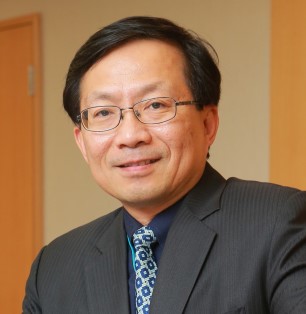
Stephen Su (蘇孟宗)
General Director
Industrial Economics & Knowledge Center (IEK) in Industrial Technology Research Institute (ITRI)
Stephen Su is the General Director of Industrial Economics & Knowledge Center (IEK) in Industrial Technology Research Institute (ITRI), currently in charge of market research in industry economic and technology trends over a wide range of high-tech and traditional industries. Prior to that, he was a Principal in Roland Berger Strategy Consultants based in Shanghai. He served as a Senior Director in charge of mobile phone accessory business division for Primax Electronics based in Taipei. Upon returning to Asia in 1994, he assumed the role of Project Leader in Boston Consulting Group (BCG) based in Hong Kong. Starting in US, he was an Applications Engineer in the Semiconductor Group of Motorola based in Phoenix. His professional specialties include Strategy, Performance Improvement, Changing of Organization, Business Process Redesign, and Marketing. Stephen received BSc in Electronic/Computer Engineering from UC Berkeley, MSc in Electronics from California Institute of Technology, and MBA from Kellogg School of Management at Northwestern University.

